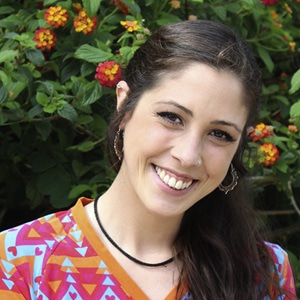Meet Inês Mahú: FEBS Advanced Courses 60th Anniversary Awardee

Our interviewee is Inês Mahú, a Postdoctoral researcher at the Max Planck Institute for Metabolism Research, Germany. Inês received a FEBS 60th Anniversary Award for an Outstanding Presentation during the FEBS Advanced Lecture Course 'Molecular mechanisms of Interorgan crosstalk in health and disease' (9–17 May 2024) in Spetses Island, Greece.
Tell us about your research topic/work. What project(s) are you working on? What is the aim of your study?
My scientific interest is to dissect how brain-body interactions regulate physiology upon immune activation to restore health, and how these processes can be disrupted leading to increased susceptibility to disease.
In my current postdoc, I am focusing on investigating the neuro-metabolic regulation of both chronic inflammatory states, such as Alzheimer's disease and obesity, and acute inflammation, as it happens during infections. I am particularly interested in understanding how molecular signals from peripheral organs and tissues are sensed by metabolism-regulating neurons in the brain, and how, in turn, this modulation of neuronal activity during immune challenges controls physiologic resiliency and overall organismal health.

Photo credits: personal archive
Who or what inspired you to choose a career in science?
My passion towards life sciences started during my basic training as a biochemist with the exposure to academic subjects such as organism physiology, immunology and biochemistry. I early on developed a great curiosity about the way living organisms sense environmental cues, and consequently mount appropriate physiologic responses to sustain health. I imagine that multicellular organisms operate like sophisticatedly tuned machines where multiple organs work in a coordinated manner to support survival and health. And it is a dream to spend my lifetime researching how animals react and adapt to different internal and external stimuli, with a particular focus on how the sensing of metabolic cues affects immunity and vice versa.
Additionally, during my PhD time (at the Gulbenkian Institute in Portugal), I was privileged to be part of an environment where students were given autonomy, freedom and encouragement to explore their curiosity and pursue their scientific passions, and I got the opportunity (by applying for funds, also with the support of FEBS) to organise a multidisciplinary symposium on the topic of our choice (report published here: https://doi.org/10.1111/febs.15368). This experience and the ability to learn from and to discuss with people from different scientific backgrounds and seniority levels really solidify my interest for life-long learning and for choosing science as a career. The best thing in science is that it is done by people, so the more international and multidisciplinary exposure we get, the more fun and (most importantly) insightful our discoveries become.
How did you learn about the FEBS Advanced Course? Why did you choose this course to attend?
I learned about the existence of this course on X/Twitter. I chose to attend it based on the topic covered and the list of speakers/lecturers.
How does attending this course influence your present and future plans? What are the benefits of attending the FEBS Advanced Course?
Attending this course allowed me to discover new tools that can be used in my research and it widened my scientific network as I got to meet scientists whom I would otherwise not have the chance to interact with in conventional meetings or conferences as the topics of research are not necessarily overlapping. Additionally, being a postdoc in a meeting with mostly student attendees was a pleasant experience as I found myself being able to learn and mentor at the same time, which was very rewarding.
What work were you presenting at the FEBS Advanced Course?
Alzheimer’s Disease (AD) is a complex disorder, which progressively affects specific areas of the central nervous system (CNS). Moreover, obesity increases metabolic and vascular comorbidities, being now identified as the main risk factor for AD. Genetic engineering of mice has been implemented to mimic the molecular pathologies of AD which, in turn, alter brain function and cognition. This allows the study of critical aspects of the disease and also the investigation of therapeutic options. The link between adiposity and AD is associated with the degree of metabolic dysfunction. Among the lipid subtypes that accumulate in obesity, ceramides are particularly impactful for the regulation of systemic metabolism as they can elicit inflammation, which underlies multiple age-related disorders.
In this project, we are investigating the role of ceramide synthase 6 (CerS6)-derived lipids for the progression of AD (in the APP/PS1 mouse model) in diet-induced obesity (DIO). We had previously uncovered that silencing CerS6 was protective against metabolic disruption upon DIO, and thus reasoned that it could also be a therapeutic target against the acceleration of AD. Preliminary results point to a worsening of cognitive function in DIO mice with a constitutive deletion of CerS6, despite their improved metabolism. And gene-ontology (GO) term analysis from CNS areas also suggests a crucial role for this enzyme in the hippocampus, as KO animals exhibit profound alterations in genes associated with neuronal cellular functions. To circumvent potential developmental effects and further the investigation of the role of CerS6 expression in adult animals, we are now also using inducible models to silence it either in peripheral organs or directly in the CNS. Altogether, these studies will provide insights into the biology of interorgan interactions and into the potential use of CerS6 reduction for improving metabolic parameters in obese patients, without increasing their risk for dementia.
How does it feel to receive a FEBS 60th Anniversary Award at a FEBS Advanced course as recognition for your work? How do you see this Award influencing your career and future?
I was very grateful to receive this Appreciation Award as the organisers made the point to explain that it was based not just on my ability to present my own research but also on my active participation during the course. As a scientist, I feel the best compliment we can have is on how good and insightful our questions are and, as such, the justification for my recognition during this course warmed me up inside and boosted my confidence as a researcher, which we tend to need all the time, especially just before coming back to the bench and dealing with experimental failures. ;)
I am not sure how this Award will impact my current journey as a postdoc or in the future, but the recognition of our peers is something invaluable in terms of mental health and feeling of belonging in our scientific careers.
What is your advice to aspiring students/scientists?
Follow your curiosity and trust your passion; experiments fail all the time, that’s why they are called that but it is just science, do not take it personally and keep asking questions. Try to overcome shyness, be kind, and make like-minded friends along the way. We are small and limited to our senses and our reasoning capacities when trying to uncover the many mysteries of Nature, but we are humans, so we can connect our collective desire to understand the world. Having fun is probably the most important thing in this very hard and competitive career.
Where do you envision the future of your career?
I see myself returning to Portugal to start my own group after I am done with my postdoc time. Although there are less funds available and the salaries are much lower than those that can be offered elsewhere, I feel that the scientific community in my home country (maybe because it is younger than in other more developed/rich European countries) is much more collaborative and diverse, less elitist, more gender-balanced and that there is a genuine will to improve the system and make it fairer for all. I want to go where diversity is appreciated and valued as I think that my own ways of seeing the world, and science in particular, are unique to my own background and experience (explained here in the highlight: https://doi.org/10.1016/j.cmet.2020.05.014), I want to go where I can contribute and make a difference without having to fight so hard against the unconscious bias of society and of the establishment.
For more information about the FEBS Advanced Courses programme visit the FEBS website.
Photo by Dan Cristian Pădureț on Unsplash.





Join the FEBS Network today
Joining the FEBS Network’s molecular life sciences community enables you to access special content on the site, present your profile, 'follow' contributors, 'comment' on and 'like' content, post your own content, and set up a tailored email digest for updates.